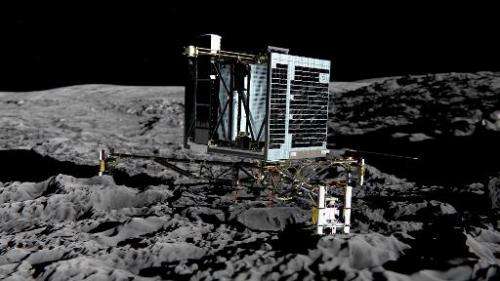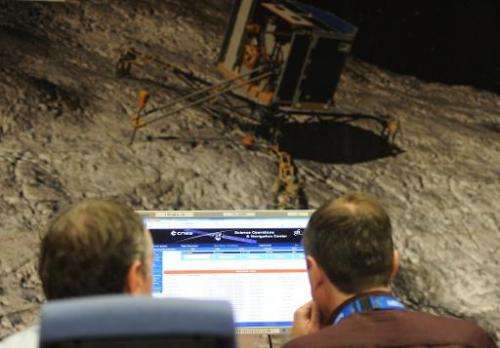First hurdle cleared in checks for comet landing

Final preparations for Wednesday's historic landing on a comet were on track after clearing a crucial systems check, the European Space Agency (ESA) said late Tuesday.
Flight managers gave their OK to the first in four checks that must be carried out before the probe Philae can descend from its orbiter craft onto a comet in deep space, it said.
"We got the first go, the first go-ahead," an ESA spokeswoman said at mission control in Darmstadt, Germany.
"The satellite is in perfect orbit."
Three other "go/no-go" evaluations lie ahead in the coming hours before the landing attempt can be authorised.
Philae is a 100-kilo (220-pound) science lab that has been piggybacking on its mothership Rosetta since the pair were launched more than a decade ago.
It is designed to detach from Rosetta and land gently on 67P/Churyumov-Gerasimenko, a comet that is now more than half a billion kilometres (310 million miles) from Earth and racing towards the Sun.
Astrophysicists hope Philae will survive the perilous descent and use its kit of 10 instruments to analyse the comet's ice and dust—the primeval remnants of the material that built the Solar System some 4.6 billion years ago.
The outcome could confirm, or demolish, a theory that comets pounded Earth in its infancy, bringing it water that became the oceans and carbon molecules that were the building blocks of life.

The first "go/no-go" was to check that Rosetta was on the right orbital trajectory for releasing its payload.
If the green light is given after the fourth "go/no-go" early Wednesday, separation is scheduled to take place at 0835 GMT.
Touchdown will take place about seven hours later, with a confirmation signal expected on Earth at about 1600 GMT.
© 2014 AFP





















